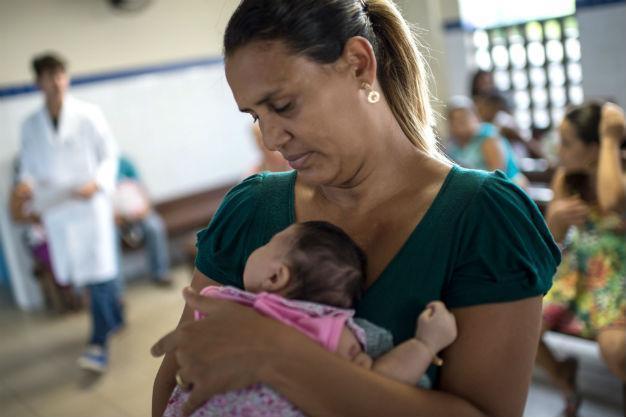Brazil issues Olympics warning as WHO declares Zika emergency
GENEVA – Agence France-Presse

AFP photo
Brazil warned pregnant women on Feb. 1 to stay away from the Summer Olympics after the World Health Organization (WHO) declared an international emergency over the Zika virus, blamed for causing a surge in brain-damaged babies.The U.N. health body said that a rise in cases of microcephaly - in which babies are born with an abnormally small head - was likely caused by the mosquito-borne virus, and declared the situation a “public health emergency of international concern.”
That prompted an unprecedented warning from Brazil, just six months from the Olympics opening ceremony on Aug. 5 in Rio de Janeiro.
“The risk, which I would say is serious, is for pregnant women. It is clearly not advisable for you [to travel to the Games] because you don’t want to take that risk,” said President Dilma Rousseff’s chief of staff, Jaques Wagner.
Wagner sought to downplay fears for Olympic athletes and fans who are not expectant mothers.
“I understand that no one needs to be afraid if you are not pregnant,” he said.
International Olympic Committee President Thomas Bach said the WHO’s declaration raises more awareness and provides “more resources to fight the virus.”
Olympic Committee officials “are in close contact” with the WHO and Olympic committees “around the world,” said Bach, speaking in Los Angeles.
“There is no travel ban,” he said. The Games “will also take place in winter time in Brazil and this is not the preferred breeding time for mosquitoes.”
These factors “make us very confident that at the time of the Olympic Games there will be good conditions for athletes and spectators.”
Some health officials also blame the Zika virus for causing Guillain-Barre syndrome, a rare disorder in which the immune system attacks the nervous system, causing weakness and sometimes paralysis.
That syndrome directly affects Zika patients themselves. Most recover, but the syndrome is sometimes deadly.
Zika was first detected in Uganda in 1947, but it was considered a relatively mild disease until the current outbreak was declared in Latin America last year.
Brazil was the first country to sound the alarm on the apparent link with birth defects, after health authorities noticed a surge in babies born with microcephaly.
It has since become the worst affected country, with some 4,000 suspected cases of microcephaly, of which 270 have been confirmed, up from 147 in 2014.
Meanwhile, Honduras on Feb. 1 declared a state of emergency after officials said the number of Zika infections is rising at an “alarming” rate in the Central American country.
Since Dec. 16, 2015, when the first case of the mosquito-borne virus was detected, there have been 3,649 cases of people infected with the virus, said Health Minister Yolani Batres.
The number of people infected with Zika tripled in the past three days, according to government figures.
Batres did not mention any cases of infants born with microcephaly, or abnormally small heads, as has been reported in Brazil and linked to Zika in expectant mothers. One elderly person may have died of Zika, but officials are still investigating.
“The number of people affected is rising each day in an alarming way,” Batres told reporters at a press conference.
















